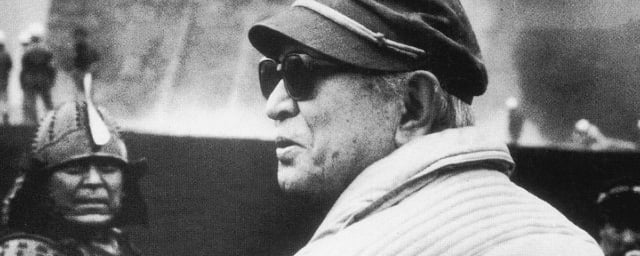Akira Kurosawa: After the failure of a film, the director of Seven Samurai made a terrible gesture – Cinema News
Japanese filmmaker Akira Kurosawa has had immense success. But after a box-office failure, his reaction led him to a desperate act. Rediscover his touching story, and above all, his defining moment in the history of cinema.
For film buffs, the name Akira Kurosawa is more than familiar. Often cited as one of the most influential filmmakers of all time by critics and audiences alike, the Japanese director enjoyed an illustrious career spanning nearly 60 years, during which he directed major masterpieces such as Rashomon and Seven Samurai – among others.
Born in 1910 in Tokyo, Kurosawa was the eighth child and youngest of the clan. He was introduced to cinema by his father at the age of six, growing up watching John Ford westerns and influential silent films, which later shaped his own artistic vision.
His childhood is considered a formative part of his development as a filmmaker, particularly his relationship with his older brother Heigo, who had worked successfully as a silent film narrator. However, when talkies developed in the 1930s, marking a major turning point in the history of cinema, it was bad news for silent film narrators like Heigo, who began to lose their jobs. Disappointed by this change, Heigo committed suicide, leaving Akira Kurosawa completely devastated. His older brother also died shortly after: the future director then became the only surviving brother of the Kurosawa family, something that would mark him forever.
This period deeply affected his sensitivity so much so that after having climbed the ladder of the Japanese and then international film industry, to the highest summit, a box office failure, with his film Dodes’ka-den, which deeply upset him, led him to a suicide attempt, fortunately failed.
A career made of masterpieces…
Akira Kurosawa made his first film in 1943, The Legend of Great Judo, which was a critical and commercial success but achieved true international recognition with his 1950 masterpiece, Rashômonwhich won him the Golden Lion at the 1951 Venice Film Festival and an honorary Oscar for Best Foreign Language Film – plus a nomination for Best Production Design (Black & White) at the Academy Awards as well. After establishing himself in the field, he made Drunken Angel in 1948, which also brought him fame and success, and which featured a new face with whom he would form one of the most iconic actor-director duos of all time: Toshirō Mifune. They ended up working together on 16 films in 16 years.
And the success didn’t stop there, Kurosawa directed masterpiece after masterpiece, from To Live (1952), offering a powerful meditation on life and death, to his flagship film (and the most famous of his filmography) The Seven Samuraihis take on the Westerns he watched as a child, and a film that, in turn, became the inspiration for John Sturges’ The Magnificent Seven (1960). Some of his works, such as The Hidden Fortress, also had a formative influence on filmmakers such as George Lucas and Steven Spielberg.

Action Cinemas / Temple Theater
…and a failure
After Barberousse (1965), however, it was the beginning of a period of inactivity until his box-office failure in 1970 with Dodes’ka-den considered “unprofitable” by Japanese studios – and yet rated 4.1 out of 5 by AlloCiné viewers. It was this failure that would lead him to a desperate gesture: Akira Kurosawa will in fact try to end his life in December 1971 by cutting his throat and wrists several times.
He had also failed to secure financing for his films, epic productions from 20th Century Fox and considered by many to be old-fashioned.
An important return
Fortunately, his attempt was unsuccessful and Kurosawa found the will to continue living and producing defining works, including one of his best films, Dersu Uzala (1975), which won the Oscar for Best Foreign Film and received a Gold Medal at the Moscow Film Festival.
In his later years, Kurosawa’s artistic vision took a different turn. Films like Dreams (based on his own dreams) in 1990 – the year he received an honorary Oscar award from George Lucas And Steven Spielberg – or Rhapsody in August in 1991 showed his maturity and his reflections on the life he led. As did his final project, Mâdadayo (1993), which means “Not yet”, a disturbing work about an old teacher loved by his students.
It was an accident, after slipping and injuring his spine, that confined him to a wheelchair for the rest of his life. Akira Kurosawa died at the age of 88 in 1998 after suffering a stroke. He had hoped to die on a film set, but his wish was not granted.
His legacy, however, is immortalized, his films continuing to inspire generations of young filmmakers. That says a lot about the renowned director and screenwriter.
Dodes’ka-den is to be (re)discovered on VOD. Just like most of his films, not to be missed.
Watch Akira Kurosawa receive his honorary award at the 1990 Academy Awards:
